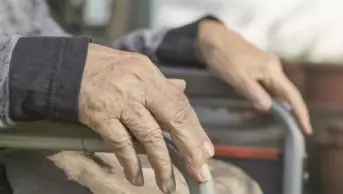
Nadia Attura
Children, older people and people taking mental health medicines represent a large proportion of the UK population yet, according to three specialist pharmacists who spoke at the Royal Pharmaceutical Society annual conference on 7 September 2014, many healthcare professionals feel they are not suitably trained to deliver high quality care to these vulnerable patient groups.
In the ‘Leading clinical practice’ stream, chaired by Steve Tomlin, consultant pharmacist at Guy’s and St Thomas’ NHS Foundation Trust, specialist pharmacists from the paediatrics, mental health and care of older people sectors discussed the issues surrounding the care of vulnerable patients and shared their thoughts on how pharmacists can contribute to improving the health of patients in their care.
“Every pre-school child visits a GP on average six times a year, [yet] 50% of GPs say they have had no formal paediatric training. I think that is pretty shocking,” said Penny North-Lewis, paediatric liver pharmacist at Leeds Teaching Hospitals Trust. “I think that there is an element of education, unfamiliarity and fear that puts children at a greater risk — that goes for pharmacists as well as doctors.”
“If 50% of GPs are not paediatrically trained, what percentage of pharmacists are not paediatrically trained?” she asked.
North-Lewis explained how pharmacokinetic differences and a lack of evidence on the use of medicines in children, coupled with formulation problems and compliance issues, can all contribute to children not getting the best from their medicines and increasing their healthcare vulnerability.
In addition to educating themselves on paediatric medicine, North-Lewis suggests that ways pharmacists can improve the healthcare outcomes for children include teaching children how to swallow tablets, signposting families to patient information leaflets that are designed for medicines use in children, and being aware of the safeguarding issues surrounding children and highlighting concerns appropriately.
The specialist paediatric pharmacist also highlighted that speaking to children about their medicines in a child-friendly format and involving them in decisions about their healthcare is important.
Communicating information to vulnerable patients is something Denise Taylor, senior lecturer in the department of pharmacy and pharmacology at the University of Bath and member of the College of Mental Health Pharmacy (CMHP), understands to be a problem for healthcare — particularly when caring for patients taking mental health medicines. “We are really bad at giving information to people that they want to know and in ways that they can understand it,” she said. “They often want to know very simple information, such as how long a medicine will take to work.”
Taylor too addressed the pitfalls in the education and training of pharmacists regarding the care of vulnerable patients. She said a recent survey conducted by CMHP showed that pharmacy graduates believed they had left university with good basic knowledge of some mental health conditions, but believed they lacked the ability to communicate effectively with people who have these conditions. “This is where we seem to be struggling,” she added.
According to Lelly Oboh, consultant pharmacist for the care of older people at Guy’s and St Thomas’ NHS Foundation Trust and East and South East England NHS Specialist Pharmacy Services, older people are most vulnerable in times of change. “The most crucial time [in the care of older people] is during care transitions — just before they are discharged and after discharge — during crisis periods, when there is a change in their condition or if there is a change in lifestyle,” she said. “These are the types of things that make people very vulnerable.” It is during these times that Oboh thinks pharmacists need to be the most vigilant to the needs of their patients.


